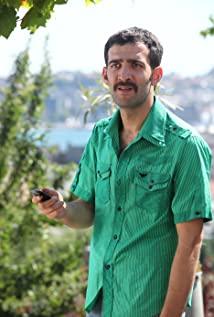peace was never an option.
For example, in October, the Turkish version of "The Gift of Room No. 7" is also tenderly released. In the face of a large number of National Day stalls and publicity, the film's "quiet" temperament (comprehensive box office 743,600 yuan "as of 2020/10/21" ”, the attendance rate was 2.4%), which also means that someone in one side is happy as a family, and someone in the other corner is crying alone.
Turkish director Memit Ida Oztekin made a localized film and television adaptation based on the 2013 South Korean "The Gift of Room 7". For [theme adaptation], the director respected the original character's emotional growth path and also gave the film Turkey's own [aesthetic form] -- "a poetic sense gathered by the child's body, forming a huge sense of irony in the times." This kind of [aesthetic form] dominates the thinking and action of movie characters and even the final decision-making behavior. .
A spiritual father (Memo) is caught in a wrongful case, forced to be separated from his five-year-old daughter (Ova), and ultimately sentenced to "death penalty". But the director added a dramatic ending to the basis of the original version - [transfer the subject of the "death penalty" and return the life of the "dead"]. That is, Memo, who was originally to be executed, was replaced by another inmate, and finally created a situation where father and daughter got together. From this, we return to the film implantation [local aesthetic form] to explore the value of film adaptation.
Turkey is located in the Middle East, all industrial development and civilization awareness are relatively slow, coupled with the so-called "sick man of East Asia" in the early years, which weakened people's aesthetic consciousness. The mixture of the Turkish environment makes people culturally and spiritually different from the strict education system of the Republic of Korea. "There is no god but Allah" is the core of Islam. Therefore, the [Angel] mentioned many times in the movie is accepted by everyone as the place of eternal life, but no one is held accountable for the existence of Allah. Until the second half of the movie, the hanging rope appeared on the screen, half of the frequency dangling in the air, and half of it was engraved in the warden's eyes.
The mentally ill Memo "kills" the officer's daughter, and the officer's anger kills "Memo"/cellmates and witnesses/deserters. If a progressive society is not enough to awaken an officer's awareness of right and wrong, then the fear of Allah will be quietly transferred to the "angel". This shift I call the [aesthetic form] of the Turkish [poetic]. One of the reasons why the Turkish version of "The Gift of Room 7" was so moved is that there is a powerful belief in questioning that exists but is not allowed to be transcended. It is not allowed, so while transferring the death [subject] poetically, it also quietly completes the perfection of [individual].
Memo qualified as a father, failed as an adult. He knew the duties of a father better than he knew the rules of a man, and he knew the measure of the angels, and indeed he could not be happy. But because of the existence of Owa, the prisoner's belief was grounded, and the care for Owa was formed through poetic transformation. This is the joy and sorrow of the little people in the director's heart. "The Gift of Room 7" is actually not just the appearance of Ova, but a group of adults who secretly exchange beliefs and believe in angels.
This integration is autonomous, a modern aesthetic with the film savoring the tears of life.
View more about Miracle in Cell No. 7 reviews









